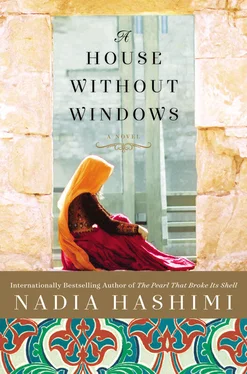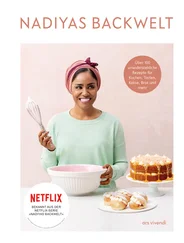Yusuf took off his glasses and rubbed the bridge of his nose. There most certainly had been a reason, a very good one he wanted to say. Instead, he turned to her first reason for approaching him.
“How’d you know I came from abroad?”
“Ask enough questions, you eventually discover a few things. Simple as that. Speaking of which, where is home for you?”
“New York. Or Washington,” Yusuf answered, knowing it was all probably one big America to her. “I’ve lived in both places.”
She peered at him, divining something from the contours of his face.
“You were young when you left.”
“I was,” Yusuf admitted. “We went to Pakistan.”
“We did too for a while. But you. . you were one of the lucky ones.” She smiled. “You went to America. We came back in 2003.”
Yusuf shifted in his chair. He was among the fortunate and knew it. It was the reason he felt uncomfortable around anyone his age in Afghanistan. They should have been peers, equals. They should have felt like countrymen, but they didn’t. It was as if they were all in the same car accident, but only Yusuf walked away without a scrape. Sultana must have sensed this.
“We were lucky, too. So many others were not.”
Yusuf rubbed the back of his neck. He was thankful for the drop in temperature, a hint that fall was approaching and bringing with it cooler winds from the north. After fall, winter would settle in with its bone-chilling temperatures. He’d be watching the street children shiver in their threadbare sweaters and thin-soled shoes. If summer was brutal, winter was death itself. Yusuf’s worst fear was that Zeba would be released from prison only to meet the justice of the outside world. Kamal’s family might choose to avenge his death. If they did, they would do it quickly, Yusuf knew. She would be dead before the first villagers’ toes turned white with chill. He thought of his grandmother’s funeral, the browned halwa his mother had made and folded into halved pita bread rounds. The crispness of the caramelized sugar was forever melded in his mind with the sound of his mother’s quiet sobbing and the feel of the masjid ’s cold linoleum through his dress socks. It would be the same for Basir, Zeba’s son, he knew. Maybe it would be the snow. Maybe every winter’s snowfall would make him think of the day he lost his mother.
Yusuf kept his eyes on Sultana’s hands, her tapered fingers and slightly rounded nails. He was a good lawyer. He’d been told so by law school professors, classmates, mentors, and supervising attorneys. He had an appreciation for statutes, precedent, formulating arguments. He liked the inherent rationality of the procedural codes and the penal codes. They were guidelines, blueprints for how to approach and build a case. They were anchors, preventing a society from becoming a ship unmoored in wild waters.
But he had traveled to the other side of the world. Sometimes, it felt as if he’d traveled back in time. The laws and codes were changing. The judge didn’t have the full story; neither did the prosecutor. Sultana had an inkling that there was more beneath the surface, but she didn’t have a clue. As things stood, Zeba’s fate would not be based on facts — it would be based on the absence of information, which made it inherently unjust. Yusuf looked at Sultana and wondered if it just might be time to work within the set of unwritten codes that governed this land.
“What if I told you where you could find information about Zeba’s case?”
Sultana cocked her head slightly and blinked.
“What do you mean?”
Yusuf tried to ignore the dampness settling into his feet. His mother would have stripped his wet socks off long ago. You don’t know it now because you’re young, she would say, but you’ll have arthritic legs the rest of your life if you don’t get out of those things. I know you’ve got all those diplomas, but there’s a lot you learn from living, too.
Yusuf tapped the tip of his pen on his notepad, then looked up. Sultana watched him, her shoulders even and poised. She knew not to push him. She only needed to be patient.
“You’re right. Zeba’s case is an intriguing one and there’s a lot more to it than can be found in her arrest register,” Yusuf said. A confidence bloomed in him that this was the right thing to do. It was, in fact, the only thing to do. “There’s been a lot of buzz in her village lately. Things people are saying about her dead husband that might shed a lot of light on what happened that day.”
“Really?”
“Yes. There’s a lot of talk about things he had done in the months before he was killed. It’s worthwhile getting to know what kind of man he was, I think.”
“You’re suggesting I go out to her village and speak to people?”
There wasn’t time for that. Yusuf knew just how long it would take to get there, knock on doors, and find the few willing to speak.
“Everyone’s been interviewed by the chief of police — a man named Hakimi. It seems the deceased had a penchant for alcohol.”
Sultana’s eyebrows perked with interest.
“Did he?”
“Yes. Among other vices. But the worst that came out of the police chief’s investigation was that he’d destroyed a page of the Qur’an. Seems he didn’t have much respect for God’s book. A man who does something like that with the holy book — well, you can just imagine how he might have treated his wife throughout their marriage.”
“I see,” Sultana said, her lips pulling together grimly.
“This information hasn’t really made its way outside. . it’s not likely to weigh too heavily on the judge’s decision because he’s looking just at the physical evidence.”
“Is there proof the husband did these things?”
“It’s what a lot of people have been saying.”
Sultana said nothing. She leaned back in her chair and narrowed her eyes on the pen Yusuf twirled between his fingers.
“Anything else?” she finally asked.
Yusuf shook his head.
“It. . it explains a lot, doesn’t it? I think it would make an interesting piece for the public to read about.”
“Which would then get back to the judge and force him to be lenient with Zeba because her husband was such an awful man that he dared to burn a page of the Qur’an.”
Sultana’s tone had a distinct edge to it. Her eyes were narrowed so that the kohl and lashes and dark irises meshed together into smoky half-moons.
Yusuf wiggled his toes. His legs were starting to ache.
“You know, I didn’t expect this.” Sultana pushed away from the table. Her face was stony with resentment. “I expected better from you, honestly. I’d heard you were trying hard to build a real case for your client. Really trying to defend her instead of moving from her file to the next dismal imprisoned woman.”
“What are you talking about?” Yusuf was thrown by her reaction. He leaned forward, stealing a glance toward the glass door to see if any of the guards might be eavesdropping.
“You want a reporter to do some dirty work for you? That’s not me. Rumors have done enough damage in this country — they’re a poison. Look at the women in this prison. You’ve seen their files, haven’t you? How many of them are here just because someone pointed a finger? I’m not going to be part of spreading another lie just because you’re about to lose your case. If Zeba doesn’t want to talk about her husband that doesn’t mean you can come up with something to justify another lynching like they tried to do in Kabul. I was there, you know. I covered the protests after that woman was murdered in the street because of a rumor. Thousands came out against street justice.”
“Look, that’s not what I was trying to do. Sultana, just let me explain.”
Читать дальше











